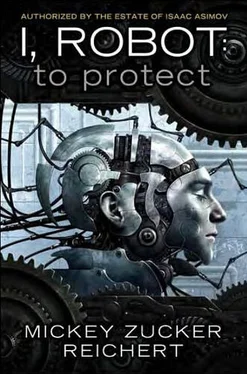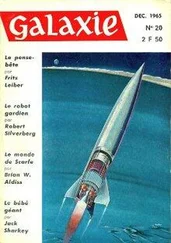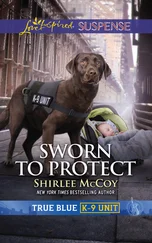Susan bit her lower lip and shook her head hopelessly. “Believe me, Kendall. I have nothing the oncologists haven’t already tried.”
Kendall rolled his eyes. “Even the nurses don’t think you’re God.”
Susan lowered her head and looked up at Kendall, trying to appear appropriately chastened.
“I’m not asking you to cure his cancer. I just wonder if you have a thought about how to draw him out.”
Susan started to speak but only sighed. She tried again. “Connor has every right to be angry; the universe or God or Mother Earth or whatever theology you ascribe to has treated him incredibly unfairly.”
“Agreed.” Kendall gave her a searching look. “Aside from that whole, rambling, politically correct ‘theology’ thing. But no one should spend his last years in a fog of impenetrable rage, especially when he has so few of them in the first place.”
Susan knew Kendall had a point. She could argue Connor ought to be allowed to act any way he wished to in his last months, but it seemed foolish. Connor’s anger had a reasonable explanation, but that did not mean he necessarily enjoyed it or wanted to spend the rest of his life enmeshed in it. “Nothing like jokes to cheer a person. And you clearly have a million of them.”
Kendall shook his head. “I’ve tried humor. I’ve gotten a rare smile, but he still chases me out of the room.”
“That rare smile is probably more than most people have managed.”
Kendall ran both hands through his hair, until it stuck up in ruddy spikes. “Maybe, but it’s not enough. It might win him over in time, but time is something he doesn’t have enough of.”
“Yes.” Susan watched Sharicka wander away from the medicine cart to sit in a plush chair and watch television. The well-cushioned chair made her look like a pudgy doll in its recesses. She no longer carried the balloon, instead clutching a stuffed monkey that looked worn and well loved. She placed the plushie in her lap, facing it toward the screen. “What does Connor do all day?”
“He lies in bed with a palm-pross on his chest. That’s about it. Day in and day out, just sitting or lying in various positions and sucking in passive entertainment.”
“What kind of passive entertainment?”
“Sports. Cartoons,” Kendall said. “I’ve noticed manga, and he does keep a stuffed animal in his bed. I’m not sure what it is; he won’t let me close enough to see it. It’s battered, though. He’s either had it a long time, or it takes the brunt of his anger.”
Susan had no special tricks up her sleeve. “Would you mind if I looked in on him this morning? It might give me some ideas.”
Kendall made a broad, dismissive gesture. “Be my guest. I’m not proud. Anything you can do to make things better is all right by me.” He winked at Susan. “If you can make me the hero this time, so much the better.”
Susan gave him a single, strong nod. “I’ll try my best.” She resisted the urge to tease him. To even jokingly suggest he did not have the stuff to become a champion meant vaunting her successes even further.
Susan headed out of the room to check on her patients before rounds. Diesel had an early-morning counseling session with his parents, a dietitian, an endocrinologist, and a social worker, preparing him for discharge. He could wait until after rounds. She headed for Monterey’s room, more in dutiful obligation than any hope she might accomplish anything. After a short visit, she intended to check on Connor Marchik.
Susan had barely exited the staffing area when an alarm bell shrilled through the corridor and over every PIPU Vox, directing them to the PIPU patient lounge. Silver light flashed around the television area, where a nurse named Alicia performed the Heimlich maneuver on Kamaria Natchez, a refractory schizophrenic patient of Nevaeh’s. Kamaria’s face had turned bluish, and she clutched wildly at her throat while the nurse drove both fists into her abdomen.
The children had scattered. A few watched curiously, including Sharicka Anson, who stood on her chair for a better view. Most bolted to their rooms, terrified either of the events or of getting blamed for them. A few cowered behind the furniture. Nurses came running, but Susan reached Kamaria and Alicia first. As the nurse was properly performing the technique, Susan did not attempt to take over. She merely stood by, waiting for Alicia to request assistance or for the situation to change.
It did, and swiftly. Kamaria went suddenly limp in Alicia’s arms. The nurse looked hopefully at Susan.
“Lay her down,” Susan said calmly. “On the floor. You need to clear her airway.”
Alicia did so. Kamaria sprawled onto the floor, fingers and face turning a duskier shade of sapphire. Placing a hand behind her neck, Alicia tipped Kamaria’s head backward to fully open her airway. Kneeling at Kamaria’s side, Susan asked, “What happened?”
“She had just taken her meds when she started choking.”
Kamaria gasped. A rubbery, vibrating sound emerged, but no air.
Susan looked into the girl’s mouth and thought she saw something red. She reached in with a finger and swept carefully, concerned she might drive the object deeper into Kamaria’s throat. Something clung to her finger as she removed it, a floppy piece of red balloon.
Kamaria huffed in another explosive breath. This time, the welcome, rushing sound of air went with it. The bluishness receded from her face almost immediately, and her eyes fluttered open. She breathed quickly, deeply, hyperventilating. Susan and Alicia helped her to the couch.
Susan put the piece of balloon into her pocket, then turned her attention to Sharicka.
The little girl met Susan’s gaze steadily, without a hint of guilt or discomfort, a slight smile playing across her lips. The whole incident had clearly amused her.
Susan could not help shivering. This was no accident. Instinctively, she knew she would find no other traces of what had once been Sharicka’s balloon except, perhaps, the string tucked away among the child’s belongings until Sharicka could find another cruel use for it.
By now, a crowd of nurses, aides, and residents had gathered. Kamaria’s face returned to normal, and she managed a hoarse “Thank you.”
Applause followed, from the staff and the other patients. Trying to downplay her role, Susan moved away and applauded Alicia and Kamaria along with the others. Monk’s expression looked pained. Nevaeh rolled her eyes. Sable clapped with the others, but she kept her gaze downcast. Only Kendall and Stony seemed truly happy for the rescue and Alicia’s and Susan’s quick reactions.
Leaving Alicia to explain what had happened, Susan hurried off to visit Monterey. The young teen sat in her bed with her earbuds in, listening to whatever music she had recorded on her Vox. Susan waved from the doorway but got no response. It would do little good to talk to Monterey. The girl could not hear her and would not answer even if she could.
Susan saw the irony in the situation. She would finish quickly and move on to Connor Marchik, trying to reach Kendall’s patient when she could not even reach one of her own. Monterey truly seemed like the ultimate hopeless case, and Susan understood why her doctors wished to resort to desperate measures. She had more difficulty comprehending the motives of the Society for Humanity. Did those protestors truly prefer that the girl live out her remaining decades in a psychiatric institute rather than undergo a process that might give her a chance at a completely normal life? Electroconvulsive therapy had its drawbacks, of course; but how could anything be worse than counting the hours and days till death in utter silence?
Susan thought back to the years when cancer therapy was as much of a crapshoot as refractory mental illness. Then, bone marrow transplant offered the possibility of a cure for otherwise certain death. It had required massive doses of radiation and/or chemotherapy to destroy all of the patient’s fast-growing cells, then an infusion of non-diseased bone marrow, usually from a donor. Patients frequently died of overwhelming infection, bleeding, graft failure, relapse, organ failures, or graft versus host disease. Even when it worked, the patients felt lousy for months, and full recovery often took years. Survival rates varied from disease to disease but averaged about fifty percent, assuming the cancer itself did not recur.
Читать дальше












